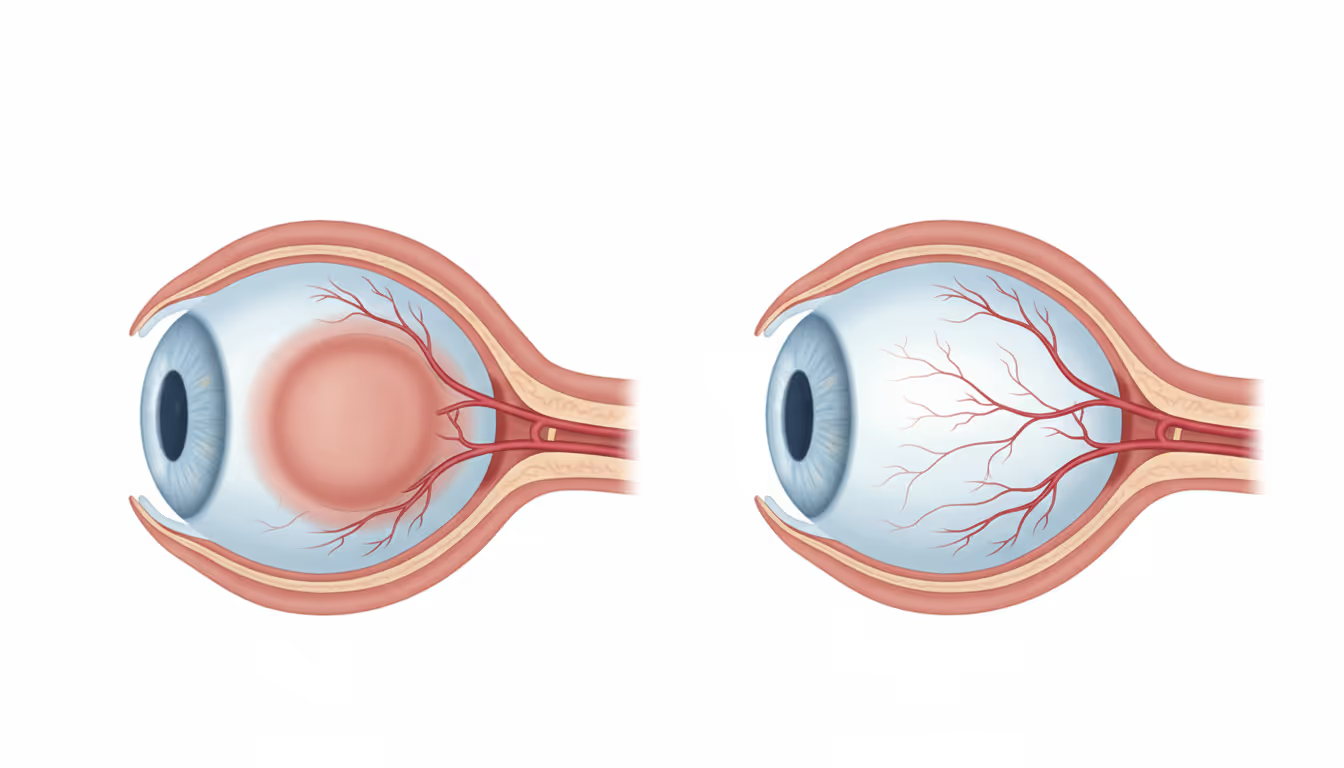
Papilledema refers to the swelling of the optic nerve head, indicating increased pressure inside the skull. The optic nerve head, also known as the optic disk or papilla, is where the optic nerve, which transmits signals from the eye to the brain, enters the eyeball. This condition is identified using an instrument that projects light into the eye, allowing the doctor to examine the area. In papilledema, the optic nerve head is unusually raised, typically affecting both eyes.Papilledema can be caused by various factors, including brain swelling from conditions like encephalitis or meningitis, tumors and other space-occupying lesions in the skull, overproduction of cerebrospinal fluid, reduced absorption of CSF due to venous sinus thrombosis, infections, or inflammation, blockages in the brain's ventricular system, hydrocephalus, premature fusion of skull sutures (craniosynostosis), and a condition known as idiopathic intracranial hypertension.Detecting papilledema necessitates prompt further investigation and potentially urgent treatment. This condition is also referred to as a choked disk.




